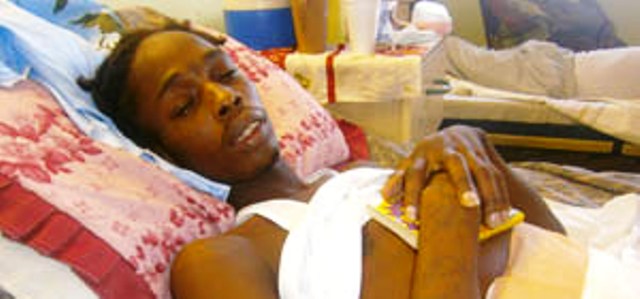Amnesty International chastises Guyana for Human Rights violations
By Jomo Paul

Colwyn Harding
[www.inewsguyana.com] – Amnesty International in its 2015/2014 report published on Wednesday February 25 detailed several infractions against Human Rights in Guyana with little or no involvement from the government.
In the report, the international human rights body pointed to several incidents including the one involving Colwyn Harding who was allegedly baton-raped by ranks of the Timehri Police Station in November 2013.
On June 02, 2014, two police officers were charged with causing actual bodily harm and one of them was also charged with common assault.
The report also pointed to 15-year-old Alex Griffith who was shot in the mouth by a police officer playing “Russian roulette” with his firearm.
The officer was charged in June 2014 with unlawful assault and discharging a firearm with intent to maim.
The report noted that “both cases were still before the courts at the end of the year….police ill-treatment remained a concern. Violence against women and girls was also a concern, and conviction rates for sexual offences remained low.”
It was also noted that subsequent to commitments made during Guyana’s UN Universal Periodic Review (UPR) in 2010, the government finally began public consultations on corporal punishment in schools.
“However, consultations into the abolition of the death penalty, the repeal of legislation criminalizing consensual same-sex relations, and discrimination against LGBTI people, to which the government also committed in 2010, had yet to begin by the end of the year.”
With respect to violence against women and girls, the report indicated that physical and sexual violence against women and girls remained a concern. According to reports, more than 140 cases of rape had been reported to the police by early September.
Conviction rates for sexual offences remained low.
“Implementation of the Sexual Offences Act, enacted in February 2013, and the National Domestic Violence Policy, launched in June 2008, remained very slow. Concerns were raised by women’s rights advocates that there was no political will to fully implement either act.”
It also underscored that “a National Plan for the Prevention of Sexual Violence had yet to be drafted, despite the new legislation stipulating its creation.”
